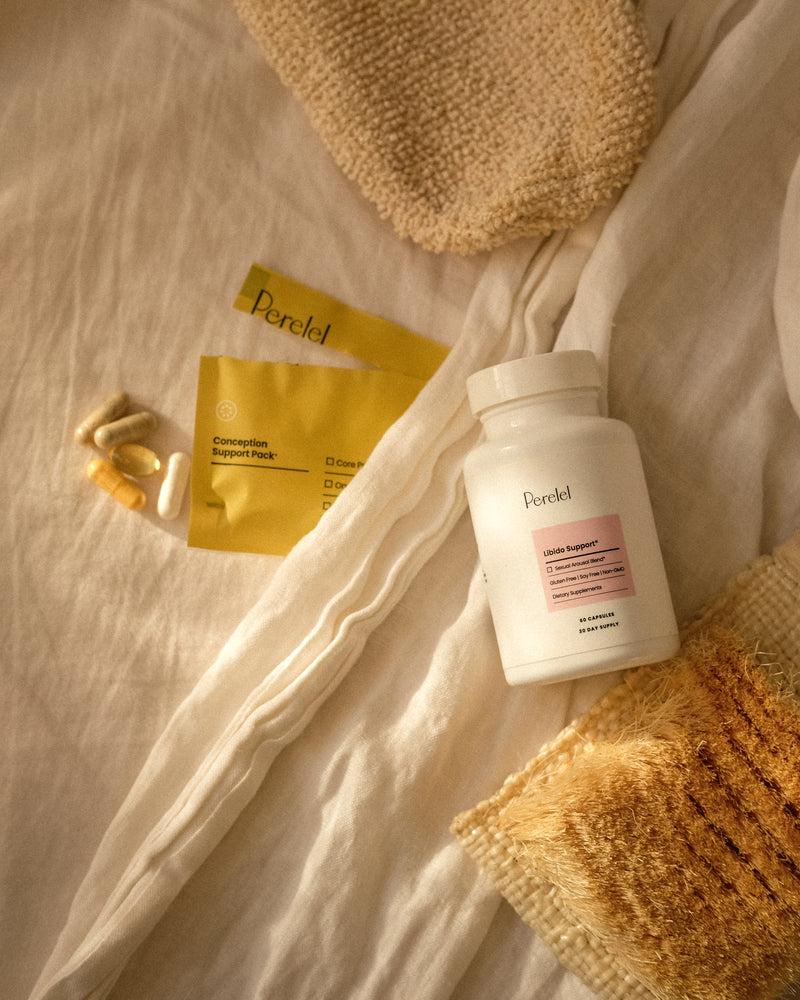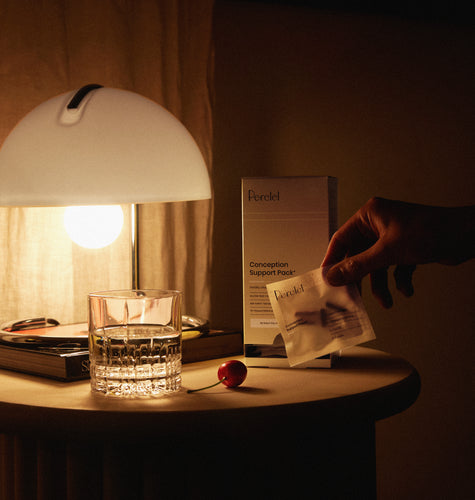For those trying to conceive, fertility issues can be a common obstacle on the path to becoming a parent. In fact, one in eight couples report issues with getting pregnant or sustaining a pregnancy. And infertility is not a gender-exclusive issue. According to the American Society for Reproductive Medicine, approximately one-third of infertility is attributed to the female partner, one-third is attributed to the male partner, and one-third is caused by a combination of problems in both partners or is unexplained.1 But taking good care of your reproductive health now will only further increase your chances of getting pregnant later. And the good news is that there are some easy, natural lifestyle changes you can make today to help with conception. That's where we come in.
“The four to six months prior to conception are very important when it comes to optimizing the health of the egg and sperm,” says Dr. Caitlin O’Connor, a Naturopathic Doctor who specializes in holistic treatment for women and children. O’Connor’s patient-centric practice is rooted in the philosophy of whole-body, individualized care with an emphasis on nutrition, botanical medicine, and healthy living. Here, she shares three natural conception tips that you (and your partner!) can start doing today.
Incorporate Foundational Practices
“Focus on foundational practices like getting adequate sleep, moderating stress, limiting caffeine intake to less than 100 mg per day, and decreasing or abstaining altogether from alcohol,” says O’Connor. “These are all significant steps to help increase fertility. Both eggs and sperm are quite vulnerable to damage from oxidative stress, which is an imbalance between free radicals and antioxidants in your body.2 So decreasing sources of that stress while increasing antioxidant activity is the goal. That comes from getting adequate amounts of sleep, eating lots of fruits and vegetables, and even nutritional supplementation.”
Limit Environmental Toxin Exposure
In order to decrease sources of oxidative stress, O’Connor says, “I cannot overemphasize the importance of decreasing toxic exposure. By really focusing on limiting these exposures, folks can greatly improve their chances of a successful pregnancy.” Of the environmental toxins to look out for, O’Connor says BPA, phthalates, lead, and mercury are at the top of the list. And by preventing exposure at home, work and in your community and becoming a smarter consumer, you can greatly reduce the toxin exposure to you and your family.3
Don’t Forget About Your Partner
According to O’Connor, one of the most common misconceptions she sees in her practice is the belief that sperm health is secondary to egg health. “Everything women are doing, their partners should be doing as well,” says O’Connor. “Sperm health is equally as important as egg health. And because sperm have a life cycle of around three to four months, everything you do in the three to four months prior to conception is going to have a direct impact on sperm quality.” Since fertility is 50/50, Perelel created their Men's Multi Support Pack so your partner can boost their fertility, too.
Shop the Article:
Next up: How to track your basal body temperature for fertility, plus the best foods to eat when you're TTC.
References:
- Fast facts - RESOLVE: The national infertility association. Resolve.org.
- Pizzino G, Irrera N, Cucinotta M, et al. Oxidative stress: Harms and benefits for human health. Oxid Med Cell Longev. 2017;2017:8416763.
- Resources: Info for families | program on reproductive health and the environment. Ucsf.edu.
This article is for informational purposes only. It is not, nor is it intended to be, a substitute for professional medical advice, diagnosis, or treatment and we recommend that you always consult with your healthcare provider. To the extent that this article features the advice of physicians or medical practitioners, the views expressed are the views of the cited expert and do not necessarily represent the views of Perelel.































